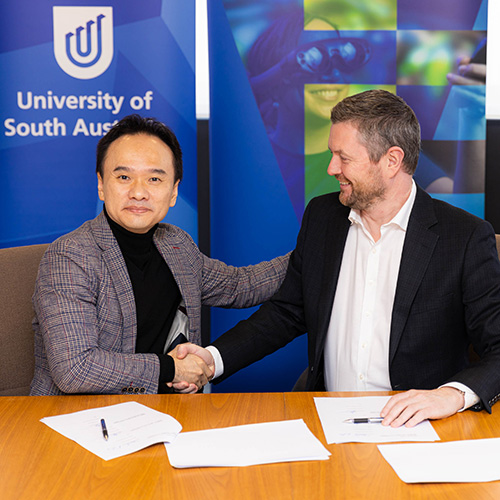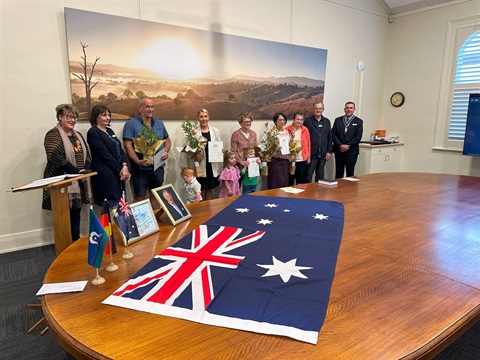
Combining music, computing and neuroscience to improve educational outcomes for South Australia’s young children will be the focus of a new research partnership announced today between the University of South Australia (UniSA) and Singaporean early education company MindChamps.
UniSA’s researchers in cognitive neuroscience and virtual and augmented reality, at the Australian Research Centre for Interactive and Virtual Environments (IVE), will collaborate with the international early education provider to help improve music, literacy and numeracy among pre-school aged children in South Australia.
The partnership was formalised today with the signing a Memorandum of Understanding (MOU) at UniSA’s City West campus in Adelaide.
MindChamps has developed a performing arts-based curriculum specifically for pre-school aged children, which will be analysed for its effectiveness by UniSA cognitive neuroscientist Professor Ina Bornkessel-Schlesewsky and the IVE laboratory using a range of techniques.
This work will be supplemented by Professor Mark Billinghurst and Dr Gun Lee from IVE’s Empathetic Computing Laboratory, who will develop augmented reality technology that empowers children to learn remotely from expert teachers with minimal impact on children’s screen time.
MindChamps’ founder, CEO and Chairman, David Chiem, says the company is “thrilled to partner with the University of South Australia to help make a significant difference to the educational outcomes of young children”.
UniSA Vice Chancellor Professor David Lloyd says the university is pleased to support cutting-edge research into early childhood education.
“By leveraging the expertise of our cognitive neuroscience and empathetic computing researchers with an established global early education provider, we look forward to seeing some tangible results that can be applied in pre-school settings,” Prof Lloyd says.








